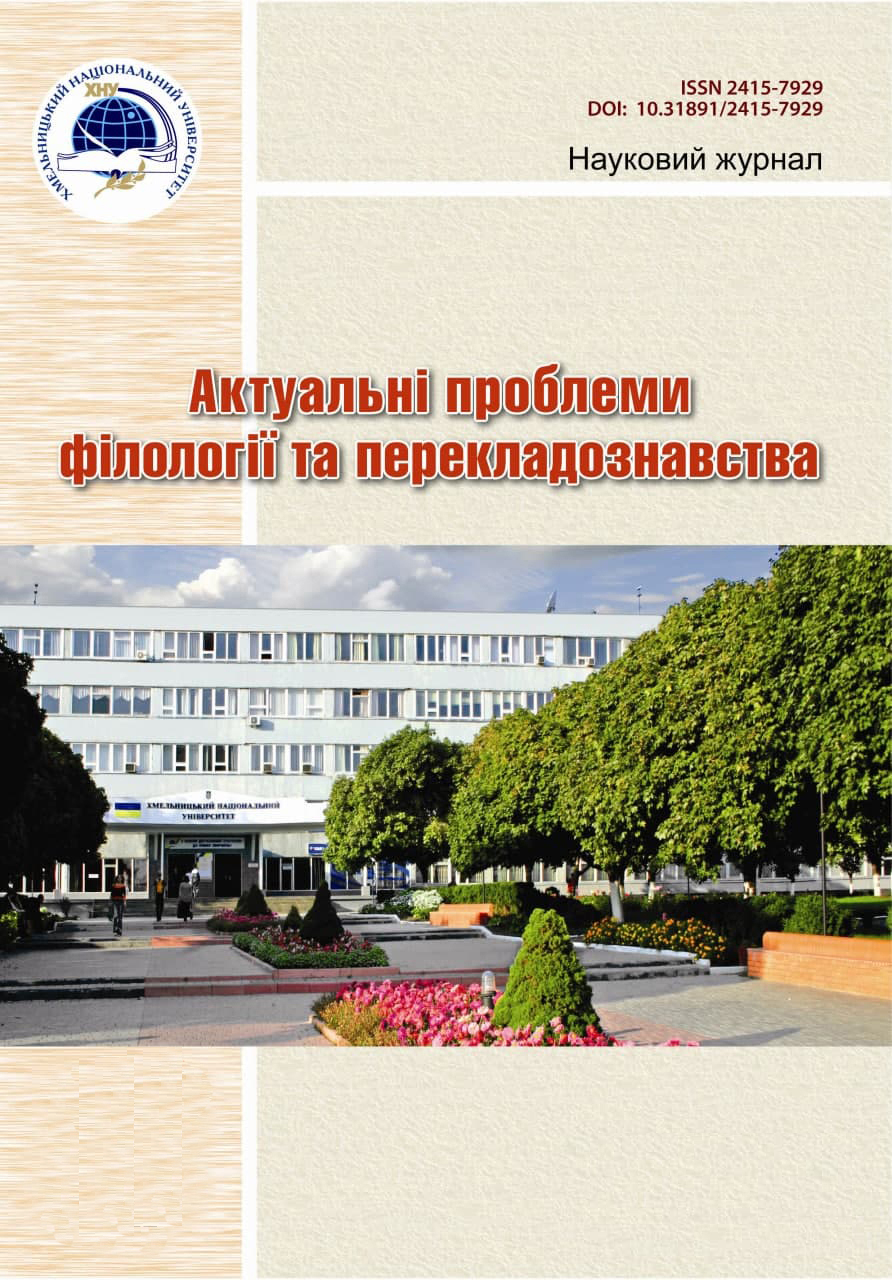THEORETICAL BASIS FOR STUDYING THE ARGUMENTATIVE AND APPEALATIVE INFLUENCE OF THE NARRATOR (based on the english-language media discourse)
DOI:
https://doi.org/10.31891/2415-7929-2025-34-9Keywords:
media discourse, narrator, pragmatics, argumentation, appeal, manipulation, communicative influenceAbstract
The article substantiates the expediency of applying the communicative-pragmatic approach to studying the argumentative and persuasive influence exerted by the narrator in English-language media discourse. Media discourse is conceptualized as a complex semiotic formation that fulfils the function of social influence by implementing specific speech interaction strategies. Within this framework, the narrator is not merely a transmitter of information but an active communication agent who consciously shapes the message to achieve a desired impact on the audience. The study emphasizes the importance of analyzing the pragmatic parameters of media texts, including the structure of communicative interaction, message transmission dynamics, and discourse's performative nature. Particular focus is given to the narrator's role in constructing arguments and deploying persuasive appeals, often incorporating implicit or explicit manipulative tactics. Drawing on argumentation theory, especially Toulmin's model, the article explores how claims, data, warrants, and backing are structured in media narratives to legitimize viewpoints and guide audience interpretation. The research also addresses emotional, ethical, and logical appeals as tools of influence that are strategically embedded in narrative frameworks. Moreover, the article identifies and explicates a range of narrator functions that operate simultaneously: narrative (storytelling and plot progression), directorial (structuring discourse and framing events), communicative (interpersonal interaction with the audience), eyewitness (creating authenticity and credibility), and ideological (conveying specific values or worldviews). These functions are shown to be essential in enhancing the effectiveness of media communication and in shaping both the cognitive perceptions and behavioural responses of media consumers. Ultimately, the article provides insights into how narrators in media texts act as potent mediators of meaning, persuasion, and manipulation, highlighting their pivotal role in the contemporary media landscape.
Downloads
Published
Issue
Section
License
Copyright (c) 2025 Владислава КУЛІШ (Автор)

This work is licensed under a Creative Commons Attribution 4.0 International License.

